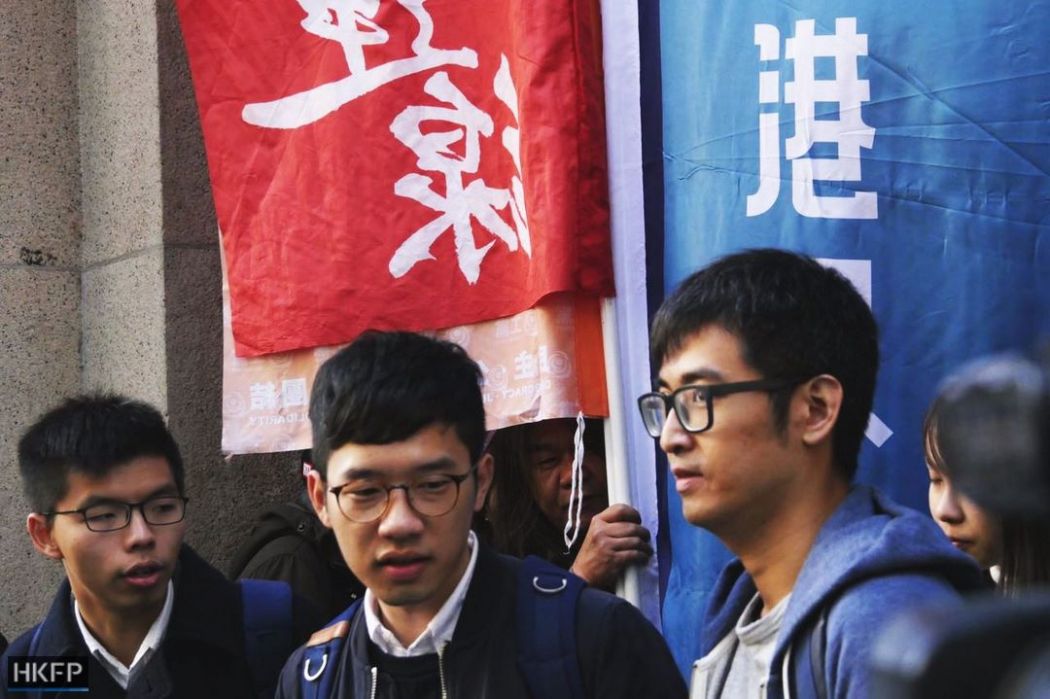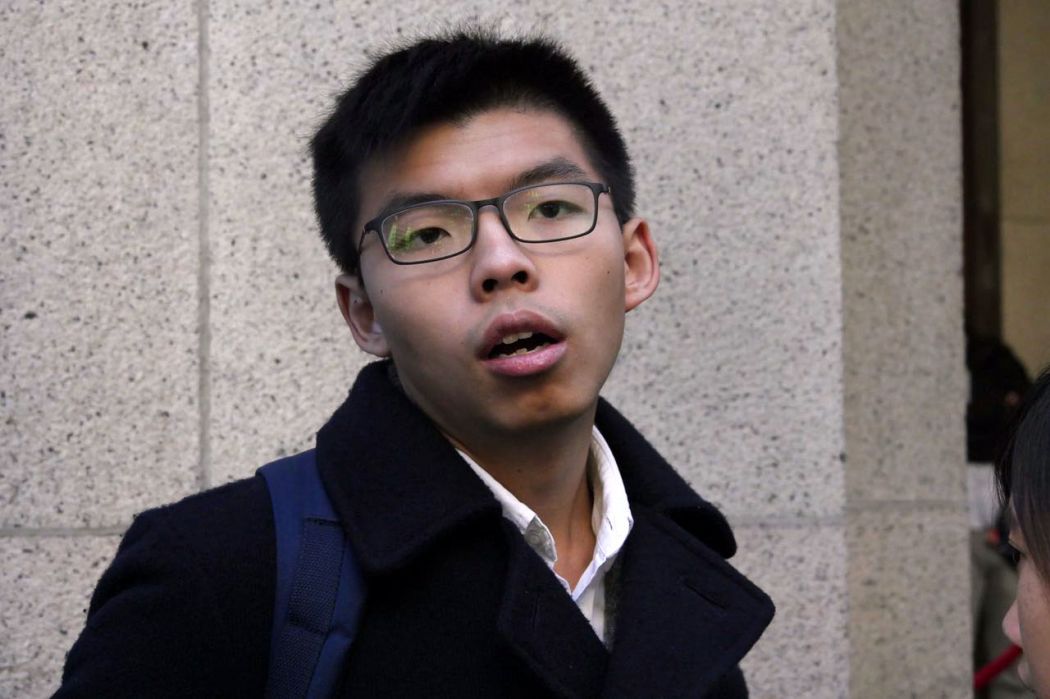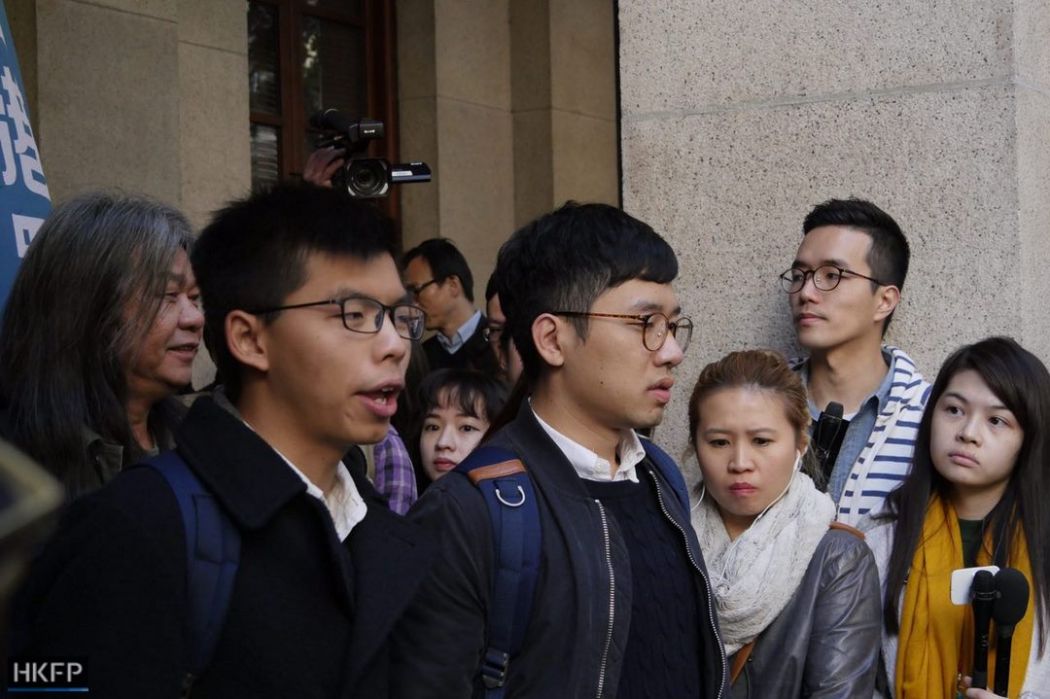Chief Justice Geoffrey Ma has said that the magistrate who handed pro-democracy activists Joshua Wong, Nathan Law and Alex Chow community service sentences was lenient. However, she was not outside the range of sentencing options available to her under the law, he said.
Ma also said that – while the Court of Appeal could lay down sentencing guidelines for further cases and decide that a serious view should be taken with similar protests – he questioned whether the magistrate could be said to have “erred in principle,” so as to allow the Department of Justice to lodge a sentence review.
The Court of Final Appeal heard the appeal applications of the three Umbrella Movement activists on Tuesday morning. In 2016, they were found guilty of unlawful assembly offences by the Magistrates Court over their involvement in the Civic Square clashes in 2014, which triggered the Occupy protests. Law and Wong were initially given a community service sentence – which they served – whilst Chow received a three-week suspended jail sentence.

However, the Department of Justice won a sentence review pushing for harsher punishment. The Court of Appeal last August sentenced the three activists to six to eight months in jail. Law and Wong were later released on bail in October 2017, and Chow a month later when the top court granted the three leave to appeal.
The appeal judgment will be announced at a later date, and bail has been extended to the trio in the meantime.
Before Tuesday’s hearing, Law said he hoped the Court of Final Appeal would serve justice by considering their motives in non-violent civil disobedience, which was not considered by the judges at the Court of Appeal. He also said that he hoped the judges would give a fair verdict.

Wong said he was optimistic about the outcome of the appeal: “Now is the chance for us to be aware how the courts of Hong Kong will recognise, will position, the motivation of civil disobedience,” he told reporters.
‘Chilling effect’
Robert Pang SC, acting for Nathan Law, argued that the court may only interfere with previous sentences in limited circumstances, such as when a sentence is wrong in principle or “manifestly inadequate.” He said that only two incidents had previously led to immediate jail sentences – the unlawful assembly which took place during the Cultural Revolution in the 1960s, and another when there was serious property damage.
Pang said that such sentences could have a chilling effect among young idealistic people who wished to express their views, and did not act out of personal benefit. However, Ma — who heads the top appeal court — said that there were others to think of, such as the general public – and said that the “security guard is not here to be hit.”

Previously, the court heard that a security guard was injured during the Civic Square clash. Ma said that the protests involved “[n]ot the most serious violence, but nonetheless, an element of disturbance and violence.”
Ma added that there was nothing wrong with the court taking a stricter line in dealing with such cases, since Hong Kong people “don’t like this sort of thing” or are scared of such behaviour.
Barrister Edwin Choy, representing Chow, said that his client had not been violent in merely jumping onto the ground or avoiding arrest during the incident. He argued that civil disobedience could be a mitigating factor – including whether the act involved violence, and whether the issues which prompted the action were just.

Public Prosecutions director David Leung told the court to consider whether the magistrate had given undue weight to mitigating factors in her sentence. “I accept that there is this range [of sentencing options], but this is not a case where no custodial sentence has been imposed in the past,” he said, referring to jail time.
However, Leung also accepted that civil disobedience is a factor to be taken into account and that there was a big jump from a community service order to a 10-month imprisonment, which was the starting point of the three defendant’s sentences at the Court of Appeal.
Wong will be in court again on Wednesday in relation to his sentence for contempt of court, having violated an injunction to clear an Occupy protest site at Mong Kok in 2014. He told reporters the court cases amounted to an “emotional rollercoaster.”
